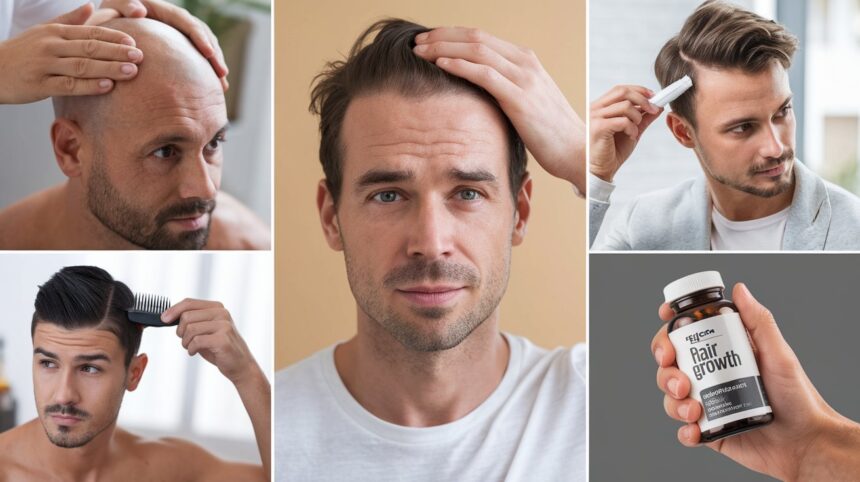Hair loss can be a distressing experience, affecting self-esteem and confidence. It’s a common issue that many face, whether due to genetics, stress, hormonal changes, or medical conditions. Fortunately, there are several hair loss solutions available, ranging from topical treatments to lifestyle changes. In this article, we will explore what actually works when it comes to combating hair loss, helping you navigate the myriad of options available.
Understanding Hair Loss
Before diving into solutions, it’s important to understand the types and causes of hair loss. The most common types include:
- Androgenetic Alopecia: Also known as male or female pattern baldness, this genetic condition results in gradual thinning of hair.
- Telogen Effluvium: This temporary condition often occurs after stressful events or significant changes in health, leading to widespread hair shedding.
- Alopecia Areata: An autoimmune condition that causes sudden, patchy hair loss.
- Traction Alopecia: Caused by hairstyles that pull on the hair, leading to breakage and loss.
Understanding the type of hair loss you’re experiencing is crucial in determining the most effective solution.
Effective Hair Loss Solutions
Minoxidil (Rogaine)
Minoxidil is an FDA-approved topical treatment available over the counter. It is applied directly to the scalp and is known to promote hair growth in both men and women. Studies show that minoxidil can help increase blood flow to hair follicles, encouraging new hair growth. Consistency is key, as results typically take several months to become noticeable.
Finasteride (Propecia)
Finasteride is a prescription medication for men that works by blocking the hormone dihydrotestosterone (DHT), which contributes to hair loss. Research indicates that finasteride can help slow hair loss and promote regrowth. However, it is essential to discuss potential side effects with a healthcare provider before starting this treatment.
Hair Growth Serum
Hair growth serums often contain a blend of active ingredients designed to nourish hair follicles and promote growth. Many serums include natural ingredients like biotin, peptides, and essential oils, which can improve scalp health and stimulate hair growth. Incorporating a quality hair growth serum into your routine can enhance the effects of other treatments and provide added nourishment.
Low-Level Laser Therapy (LLLT)
LLLT is a non-invasive treatment that uses laser light to stimulate hair follicles. Studies have shown that this therapy can increase hair density and promote growth without the need for invasive procedures. LLLT devices are available in various forms, including caps and combs, making them a convenient option for at-home use.
Platelet-Rich Plasma (PRP) Therapy
PRP therapy involves drawing a small amount of blood, processing it to concentrate the platelets, and then injecting it into the scalp. This treatment utilizes the body’s natural growth factors to promote hair regeneration. Research suggests that PRP therapy can improve hair density and thickness in individuals experiencing hair loss.
Nutritional Supplements
Hair health is closely linked to nutrition. Supplements containing vitamins and minerals such as biotin, zinc, vitamin D, and iron can support healthy hair growth. Incorporating a multivitamin or specific hair growth supplement may provide the nutrients your body needs to promote hair health from within.
Proper Hair Care Practices
Using gentle hair care products and adopting proper hair care practices can help prevent further hair loss. Avoid excessive heat styling, harsh chemical treatments, and tight hairstyles that can cause traction alopecia. Instead, focus on nourishing shampoos and conditioners that promote scalp health.
Stress Management
Since stress is a known contributor to hair loss, managing stress through mindfulness practices, exercise, and relaxation techniques can be beneficial. Activities like yoga, meditation, and regular physical exercise help reduce stress levels, which may positively impact hair health.
Conclusion
Navigating the world of hair loss solutions can be overwhelming, but understanding what actually works can help you make informed decisions. From FDA-approved treatments like minoxidil and finasteride to natural options like hair growth serums and lifestyle changes, there are various approaches to combating hair loss. It’s essential to consult with a healthcare professional to determine the most suitable option based on your individual needs and the cause of your hair loss.






